Celery Seeds (Apium graveolens)
Growing Celery from seeds requires patience and dedication, but the results are well worth the effort. With the right combination of moisture, soil preparation, and consistent feeding, your celery plants will thrive and offer a crunchy, nutritious addition to your garden. The slow but steady growth of celery makes it a rewarding crop for gardeners who enjoy the process of nurturing plants over a long season. By saving seeds from your best plants, you can ensure a successful celery crop year after year.
- Estimated Delivery : Up to 3 business days
- Free Shipping & Returns : On all orders over ₹550 in Bangalore
Celery is a cool-season crop that requires well-prepared soil and consistent care for a successful harvest. Growing celery from seeds can be a rewarding experience, especially when you provide the right conditions for this slow-growing vegetable.
1. Seed Selection
• Choose high-quality celery seeds from a trusted supplier to ensure optimal growth.
• Varieties include Golden Self-Blanching, Utah Improved, and Tall Utah, each with unique characteristics in flavor and growth habit.
2. Planting Time
• Start seeds indoors 10-12 weeks before the last expected frost date in your area.
• Celery is a cool-season crop, so transplant it outdoors when temperatures are between 55-70°F (13-21°C).
3. Soil Preparation
• Use rich, well-draining soil that holds moisture well but doesn’t become waterlogged.
• Amend the soil with compost or well-rotted manure for high organic content, and aim for a slightly acidic to neutral pH of 6.0-7.0.
4. Seed Sowing
• Sow seeds thinly on the soil surface, as they require light to germinate. Gently press them into the soil without covering.
• Space seeds about 2 inches apart in trays and thin seedlings to 4-6 inches apart after they sprout.
5. Germination
• Celery seeds are slow to germinate, taking 14-21 days to sprout at temperatures between 65-70°F (18-21°C).
• Keep the soil consistently moist during germination and provide bottom heat if possible to speed up the process.
6. Watering and Care
• Celery requires consistent moisture. Water regularly to keep the soil evenly moist, particularly during dry spells.
• Mulch around the plants to retain moisture and regulate soil temperature.
7. Fertilizing
• Celery is a heavy feeder. Apply a balanced fertilizer (NPK 5-10-10) every 2-3 weeks after planting to support its nutrient needs.
• Supplement with compost or organic matter during the growing season to promote healthy growth.
8. Pests and Diseases
• Monitor for common pests such as aphids, leaf miners, and slugs. Use neem oil or insecticidal soap for control.
• Celery can be susceptible to fungal diseases like blight and leaf spot. Ensure good air circulation and avoid overhead watering to prevent these issues.
9. Harvesting
• Harvest celery stalks once they are about 8-10 inches tall and have a crisp texture, typically 85-120 days after sowing.
• You can harvest individual stalks as needed or cut the entire plant at the base for a full harvest.
10. Seed Saving
• Allow some celery plants to bolt and flower in their second year (celery is biennial). After the flowers dry and produce seeds, collect the seeds for future planting.
• Store seeds in a cool, dry place, and they will remain viable for up to 5 years.
Conclusion
Growing Celery from seeds requires patience and dedication, but the results are well worth the effort. With the right combination of moisture, soil preparation, and consistent feeding, your celery plants will thrive and offer a crunchy, nutritious addition to your garden. The slow but steady growth of celery makes it a rewarding crop for gardeners who enjoy the process of nurturing plants over a long season. By saving seeds from your best plants, you can ensure a successful celery crop year after year.


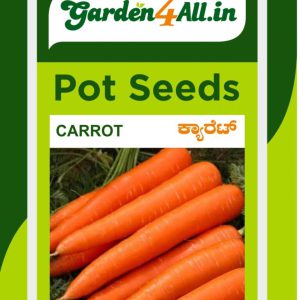
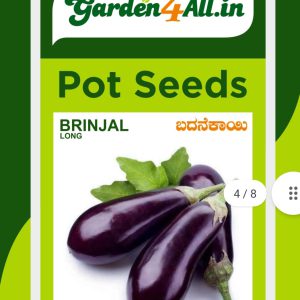

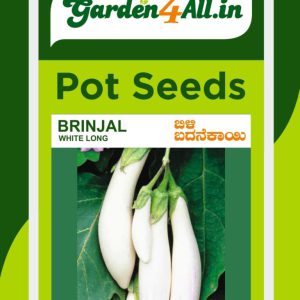
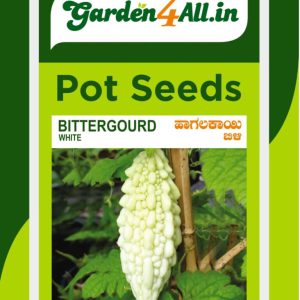

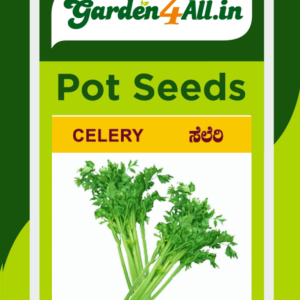
Reviews
There are no reviews yet.